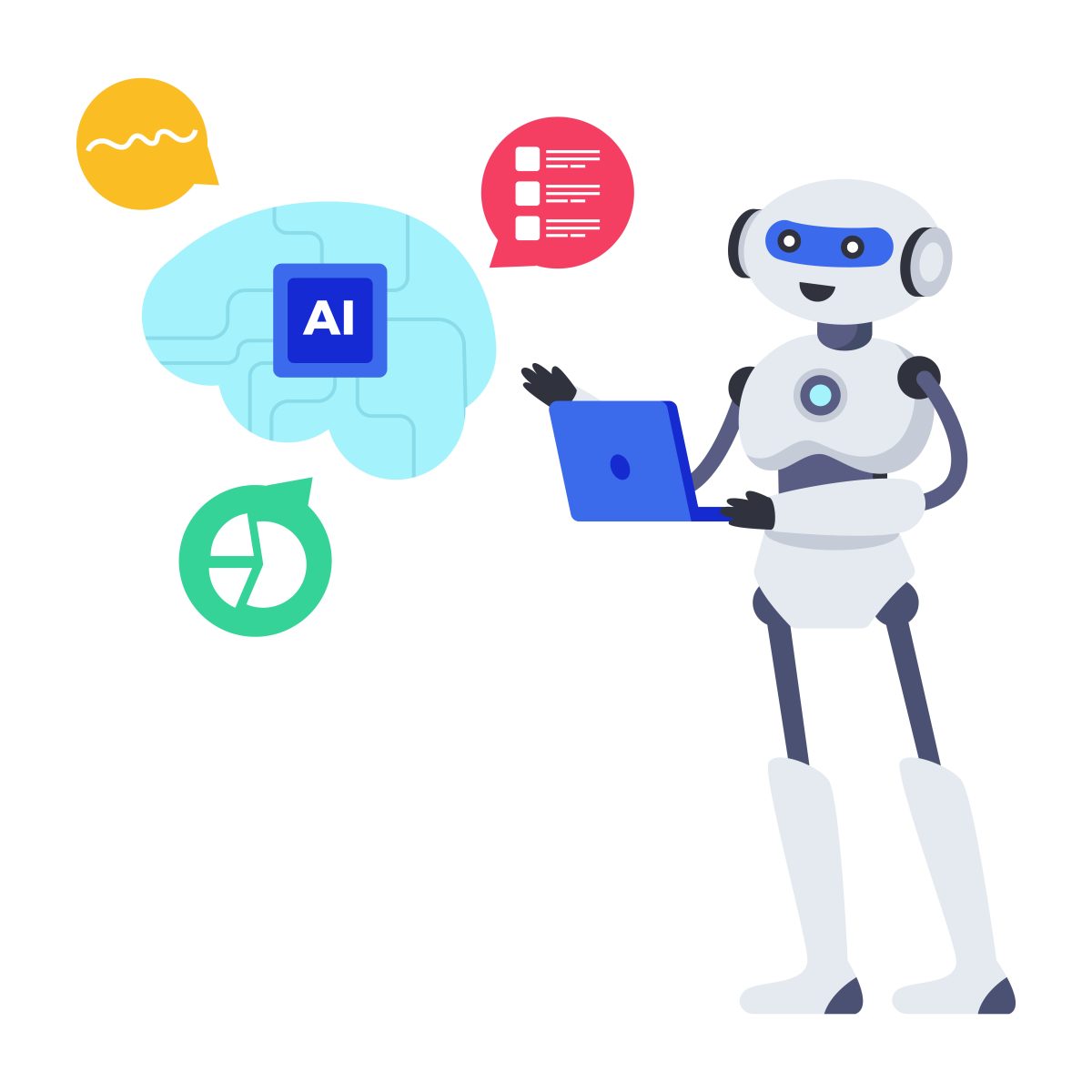The insurance industry is transforming digitally, as traditional methods give way to new, advanced technologies. Among the most promising innovations is Generative AI, a powerful tool that is reshaping how insurers manage risk, process claims, engage with customers, and develop new products. By harnessing vast amounts of data and creating intelligent, automated solutions, generative AI in Insurance is streamlining operations, enhancing personalization, and enabling insurers to better meet customer needs in an increasingly complex and fast-paced environment.
What is Generative AI?
Generative AI refers to a category of artificial intelligence that creates new data or content based on existing information. Unlike traditional AI, which typically focuses on classification or prediction, generative AI can simulate new scenarios, generate textual content, design solutions, and even model complex systems. In the context of insurance, it can be used to create personalized policies, predict risk more accurately, automate claims processing, and provide real-time customer support.
How Generative AI is Transforming the Insurance Industry
1. Personalized Insurance Products
One of the most notable benefits of generative AI in insurance is its ability to create personalized policies. Traditionally, insurance products have been generalized, with set terms and conditions designed for broad categories of people. However, generative AI can analyze vast datasets including customer demographics, lifestyle, behavior, and historical claims to craft policies tailored to individual needs.
For example, instead of a one-size-fits-all health insurance plan, generative AI could design a custom policy that reflects a person’s unique health risks, such as pre-existing conditions or even lifestyle habits like smoking or exercise. This not only ensures that customers receive better coverage but also helps insurers offer more competitive products in an increasingly crowded marketplace.
2. Improved Risk Assessment and Underwriting
Underwriting has long been a critical but cumbersome process in the insurance industry. Traditional underwriting relies on static models that may not always account for new or emerging risks. Generative AI enhances risk assessment by analyzing vast amounts of data including external sources like weather patterns, global trends, and social media to create highly accurate risk models.
AI can simulate various scenarios to predict potential losses and refine risk calculations in real time. For instance, an insurer can use AI to model the impact of a natural disaster, adjusting their policies and premiums accordingly. This improves underwriting efficiency, reduces risk, and ensures that the insurer is better prepared for unforeseen events.
3. Automated Claims Processing
Claim processing is a vital function of any insurance company, but it’s often slow and prone to human error. Generative AI can automate several steps in the claims process, from initial assessment to payout. AI models can analyze text and images submitted by customers to assess the validity of a claim, determine the cause of loss, and calculate the appropriate payout amount.
In addition, AI can detect fraudulent claims by identifying patterns of behavior that deviate from the norm. For example, by comparing current claims data with historical trends, AI can flag suspicious activities and alert human adjusters. This not only speeds up legitimate claims but also helps reduce losses due to fraud.
4. Enhanced Customer Support and Engagement
In today’s competitive insurance market, providing exceptional customer service is crucial. Generative AI is making significant strides in customer support by enabling 24/7 interaction through chatbots and virtual assistants. These AI-powered systems can handle common queries, assist with policy management, and even provide tailored recommendations based on a customer’s profile.
Moreover, generative AI can enhance customer engagement by creating personalized communication. For example, it can generate customized emails or alerts that remind customers of upcoming renewals, new coverage options, or claim updates. By offering a more personalized, seamless experience, insurers can build stronger relationships with their customers, improving retention and satisfaction.
5. Innovative Product Development
Generative AI is also playing a key role in insurance product innovation. By analyzing customer preferences, market trends, and external data, AI can help insurers design new products that meet evolving consumer needs. This is particularly important as new risks emerge in the digital and physical worlds, such as cyber threats, climate change, or the gig economy.
For example, AI could help insurers develop products tailored to remote workers, offering flexible policies that adjust coverage based on the nature of a client’s job or working hours. It could also enable insurers to offer innovative cybersecurity insurance tailored to businesses facing heightened digital risks. With AI, insurers can quickly adapt to changes and develop solutions that are highly relevant to their customers.
6. Regulatory Compliance and Reporting
Insurance is a highly regulated industry, and keeping up with constantly changing laws and regulations is a challenge. Generative AI can assist insurers in regulatory compliance by automating the creation of reports, ensuring that all documents meet legal requirements, and identifying potential compliance gaps.
AI systems can continuously monitor regulations and flag changes that could affect policies, underwriting, or claims processing. This reduces the risk of errors or fines and helps insurers stay agile in a complex regulatory environment.
 Key Benefits of Generative AI in Insurance
Key Benefits of Generative AI in Insurance
-
Efficiency and Cost Savings
By automating processes like underwriting, claims management, and customer service, AI reduces the need for manual intervention, speeding up operations and lowering operational costs.
-
Enhanced Decision-Making
AI’s ability to analyze large amounts of data and simulate various scenarios improves the accuracy of decision-making in areas like risk management and product development.
-
Better Customer Experience
Personalization, faster claims processing, and 24/7 customer support led to higher satisfaction and loyalty among policyholders.
-
Fraud Prevention
AI can detect anomalies in claims data, improving fraud detection and preventing losses.
Challenges and Considerations
While the potential of generative AI in insurance is vast, there are challenges to consider. Data privacy and security are major concerns, as insurers must handle sensitive customer information. AI systems must adhere to strict data protection regulations to maintain customer trust.
Another challenge is the risk of bias in AI algorithms. Since AI systems learn from historical data, they may inadvertently perpetuate biases present in the data, leading to unfair or discriminatory outcomes. Insurers must ensure their AI systems are transparent, ethical, and regularly audited to avoid these pitfalls.
Conclusion
Generative AI is revolutionizing the insurance industry by enhancing efficiency, personalizing services, and improving risk management. From automating claims processing to creating tailored policies, AI enables insurers to stay competitive in a digital-first world. Similarly, tools like Stratpilot, designed to streamline workplace management and boost SMBs’ productivity, demonstrate AI’s broader potential to simplify operations and enhance collaboration. Both sectors leverage AI to optimize processes, improve decision-making, and foster better outcomes, highlighting the transformative role of AI across industries in driving innovation and efficiency.
Take advantage of the chance to transform your insurance operations. Sign up for Stratpilot today and unleash your team’s complete potential.
by – Vamsi Bumireddy (CTO)
Frequently Asked Questions (FAQ’s)
-
How does generative AI enhance claims processing in insurance?
Generative AI automates claims assessment by analyzing text and image data to validate claims, determine payouts, and identify fraudulent activities. This leads to faster processing times and reduces errors, enhancing the overall efficiency of insurance operations.
-
What are the risks of using generative AI in insurance?
While generative AI offers significant benefits, challenges include ensuring data privacy, managing algorithm biases, and adhering to regulatory compliance. Proper safeguards and regular audits are essential to mitigate these risks.
-
How can Stratpilot benefit the insurance industry?
Stratpilot empowers professionals by acting as an AI assistant and productivity companion. It offers features like an integrated AI chat for decision support and predefined workspace templates, enabling enhanced productivity. Stratpilot excels in supporting professionals with data insights tailored to individual or team needs.





